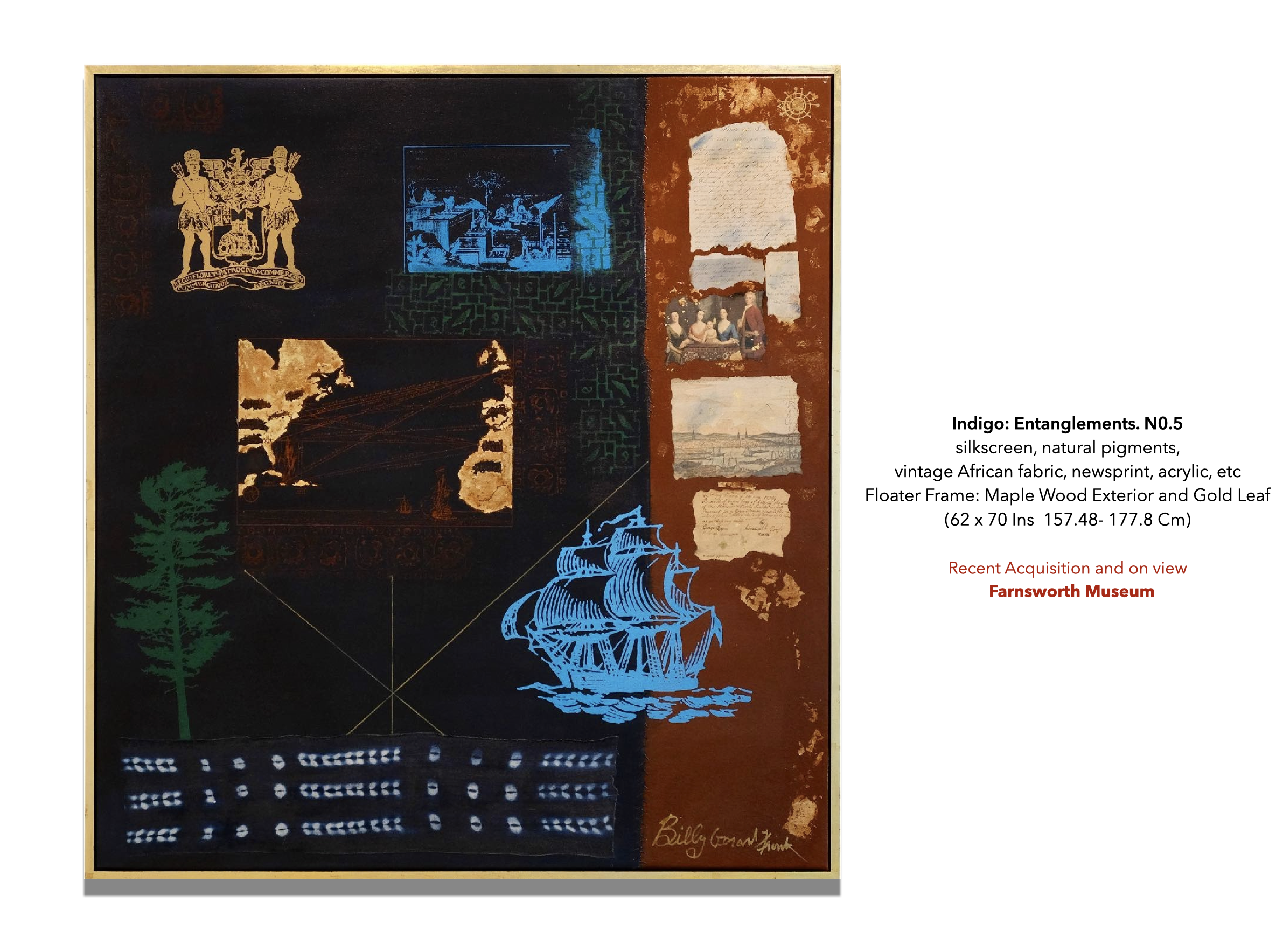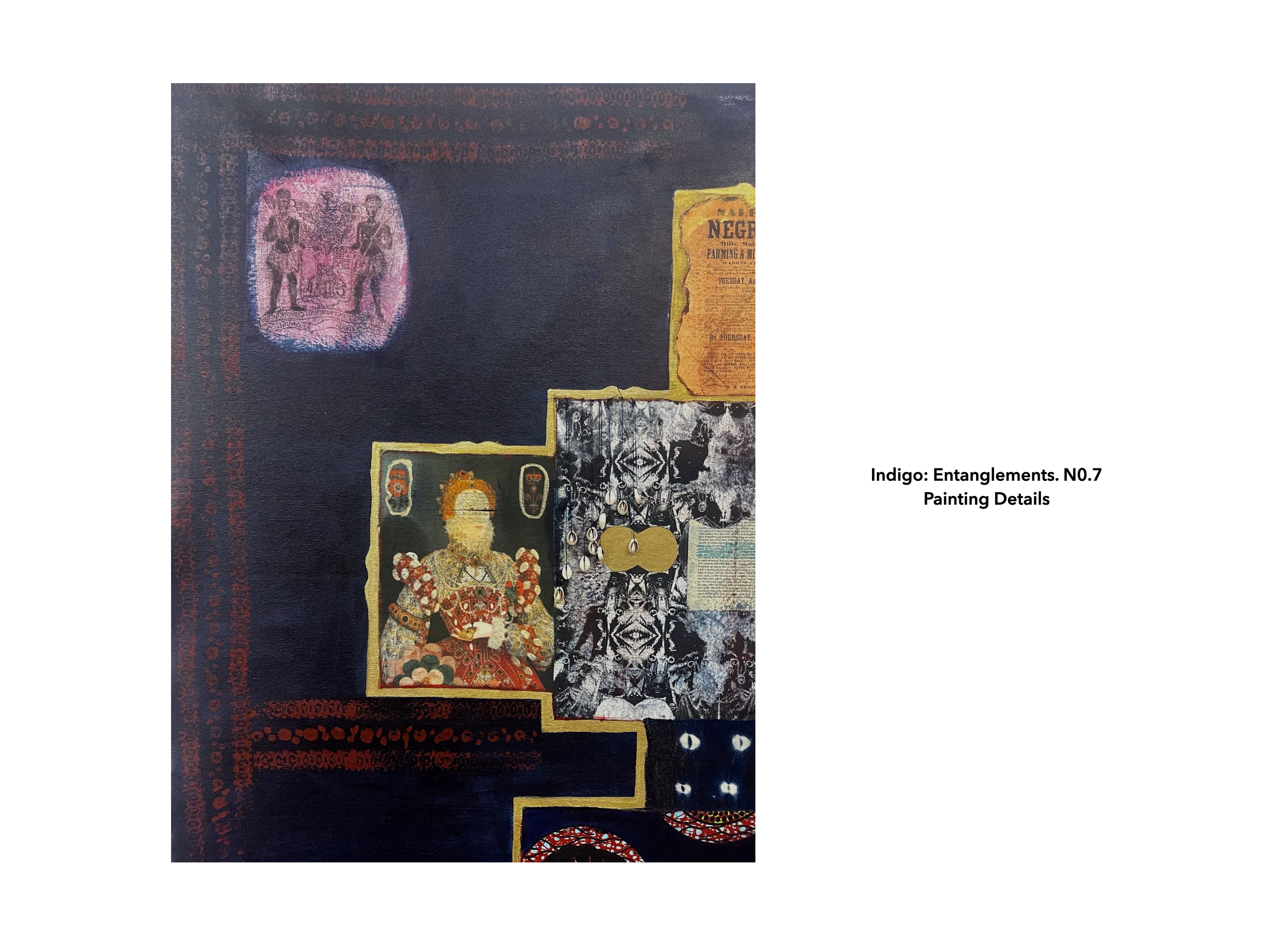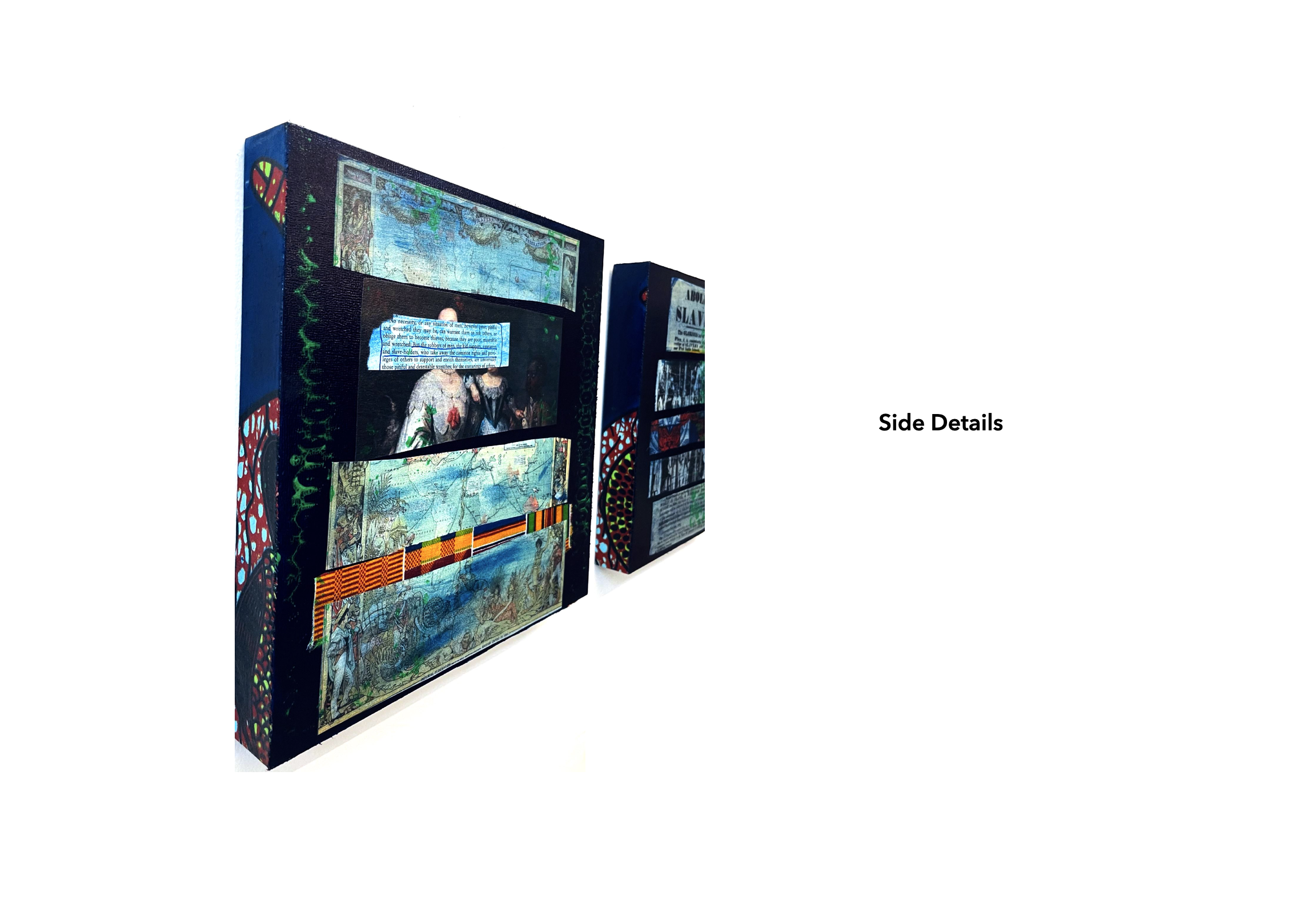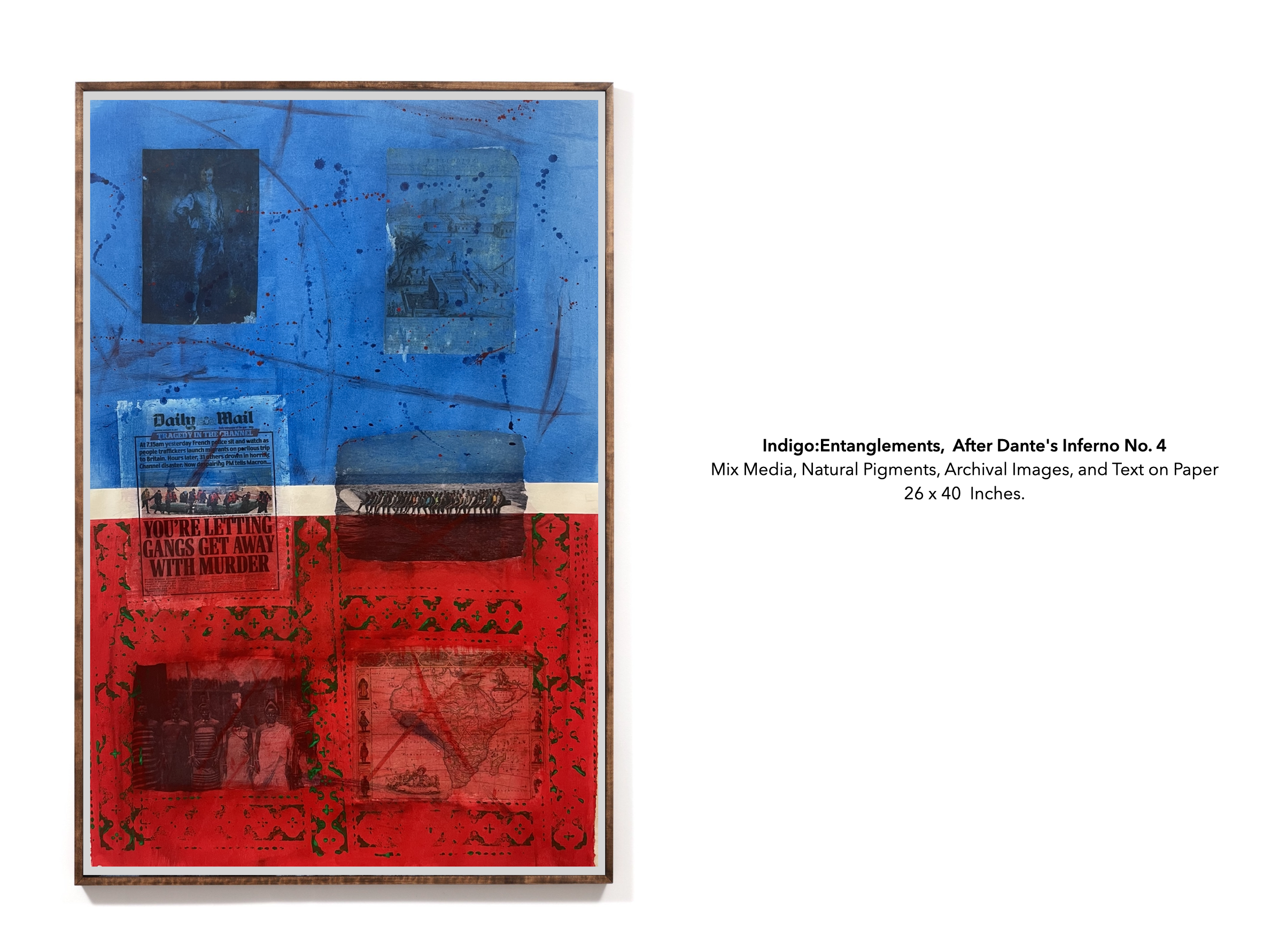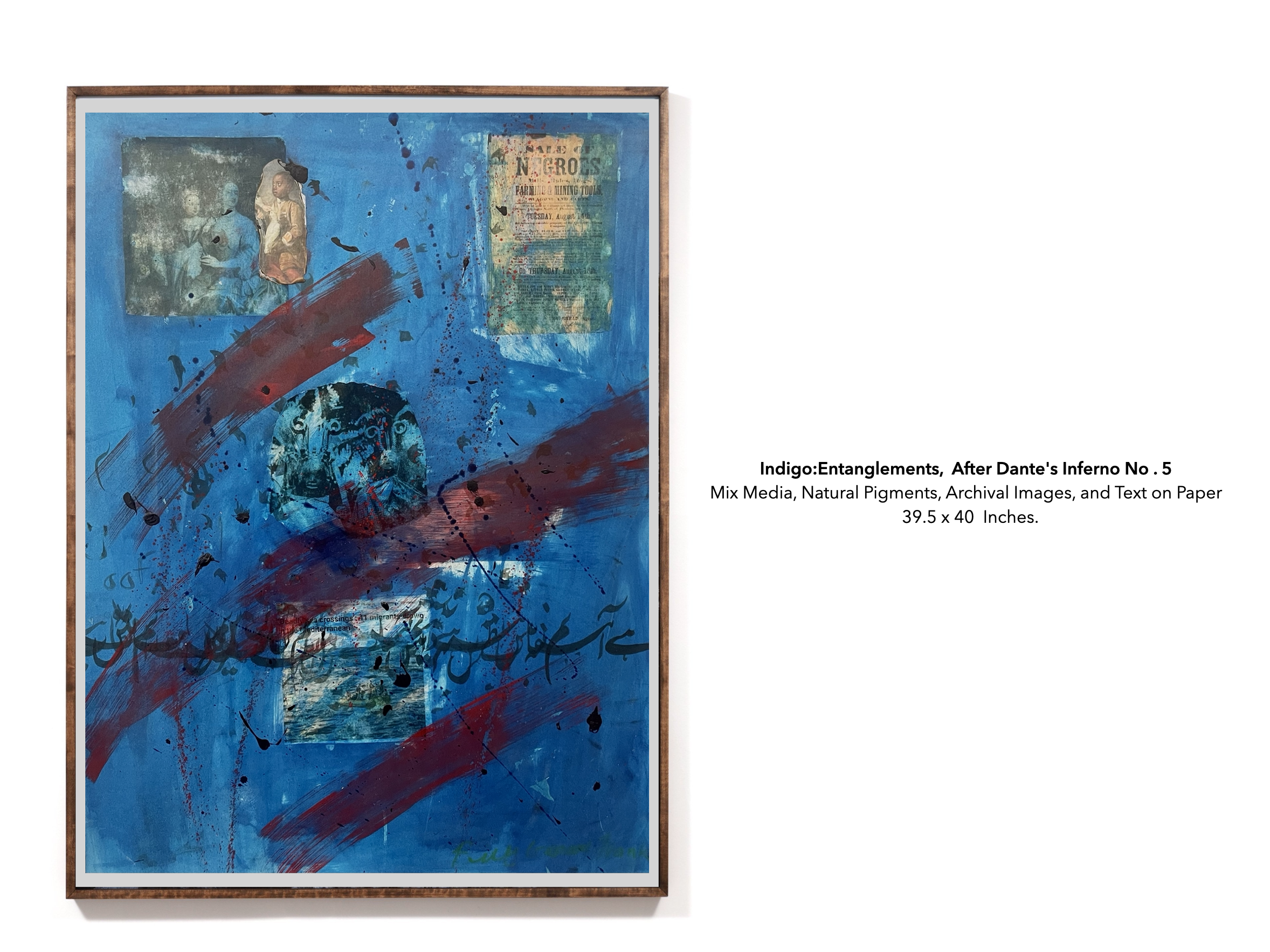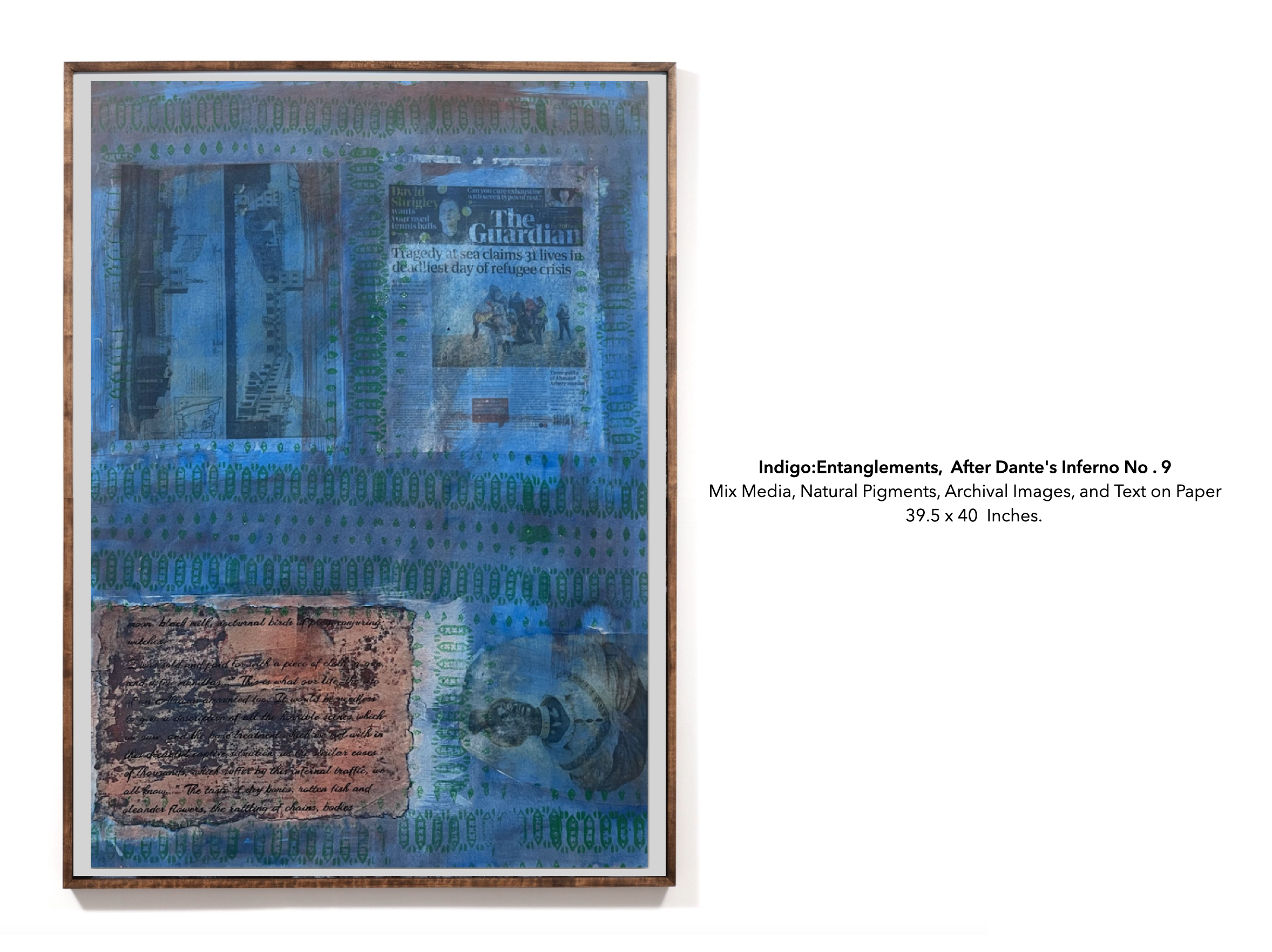Indigo: Entanglements
Indigo: Entanglements
“While history is what happened, it is also, just as important, how we think about what happened and what we unearth and choose to remember about what happened”
― Nikole Hannah-Jones, The 1619 Project: A New American Origin Story
Indigo: Entanglements is a new and ongoing body of works (multimedia painting incorporating silkscreen, vintage African fabric, newsprint, acrylic, etc.) interrogating the unmitigated drama and tragedy of New World Slavery and Trans-Atlantic slave trade. The Trans-Atlantic slave trade was, in the words of the African American scholar and activist W E B Du Bois, "the most magnificent drama in the last thousand years of human history…. The transportation of ten million human beings out of the dark beauty of their mother continent into the new found El Dorado of the West…. They descended into Hell”"
In the wake of the unrest created by the BLM, Europe and North America have had to reckon with their entangled and complicated relationships and histories around the slave trade; and examine their institutions and archives through the decolonized lens. The term decolonization has been overwrought and as University of Edinburg scholar Lisa Williams states, “Decolonization is increasingly used to mask an ongoing colonization of sorts; an extractive process of annexing knowledge that co-opts and neutralizes more radical analyses to serve the status quo.”
Decolonization represents the most profound shift that the former colonial centers of the colonized, particularly (England, France, Scotland, and North America) have had to face in terms of political, social, and cultural self-projection, pointedly England with the passing of Queen Elizabeth II; her legacies associated with the British monarch and its representation. In the process of colonial powers facing uncomfortable truths and memories regarding the history of colonialism, slavery, empires, and accumulation of wealth from the slave trade, the question arises: How should Europe and North America confront their colonial histories that date back to the colonial era? Can we judge the past by today’s moral standards? And what about reparations and stolen goods in European museums connected to that past? These strands of ideas are at the forefront of my mind as I explore this body of work. I mine and contest, images, symbols, text, and collective memories culled from histories, exploring the human complexity and drama of the slave trade and colonialism. Furthermore, I am interested in the impact and effects of the colonial past vis-à-vis present-day politics and views around migration, and social conflicts in Europe, Africa, and North America regarding the aforementioned. I am also exploring archival and ethnographic images and the framing of black figures in European paintings in the 17th and 18th century.
“Not everything that is faced can be changed, but nothing can be changed unless it is faced.” — James Baldwin
Each painting in the series Indigo: Entanglements thereby acts as a mirror of truth held up to the viewers; artifacts of shared cultural and social; personal and collective remembrances. The works will be framed in Gold and Maple wood and behind panes of glass. The imposition of glass panes serves as an aesthetic and artistic device for symbiotic reflectivity, further implicating the viewers.
Indigo: Entanglements draws from similar themes as my 2022 Venice Biennale works, Palimpsest: Tales Spun from Sea and Memories exploring the slave trade and abolitionist movement; Scotland and Great Britain’s entangled relationship with the slave trade, the Caribbean and Africa, told through the Lens of Ottobah Cugoano, also known as John Stuart (c. 1757 – after 1791). Cugoano was a seminal figure in the abolitionist moment, a political activist, and writer from West Africa who was active in Britain in the latter half of the eighteenth century. Captured in the Gold Coast and sold into slavery at the age of 13, he was shipped to Grenada in the West Indies, and later bought by Scottish plantain owner, Alexander Campbell who took him to England as his personal Servant. After gaining his freedom, he worked for the royalist artists Richard and Maria Cosway, where he was exposed to all the pageantries and classes of Great Britain and was one of the first Afro-Briton to have penned a book, Thoughts and Sentiments on the evil and wicked traffic of the slavery and commerce of the human species while employed in the house of the Cosways. The film installation which premiered in the 2022 Venice Biennale is based on excerpts from Cugoano’s book and accompanied works: photographic images and sculpture.
Citation of Image archives are available upon request




